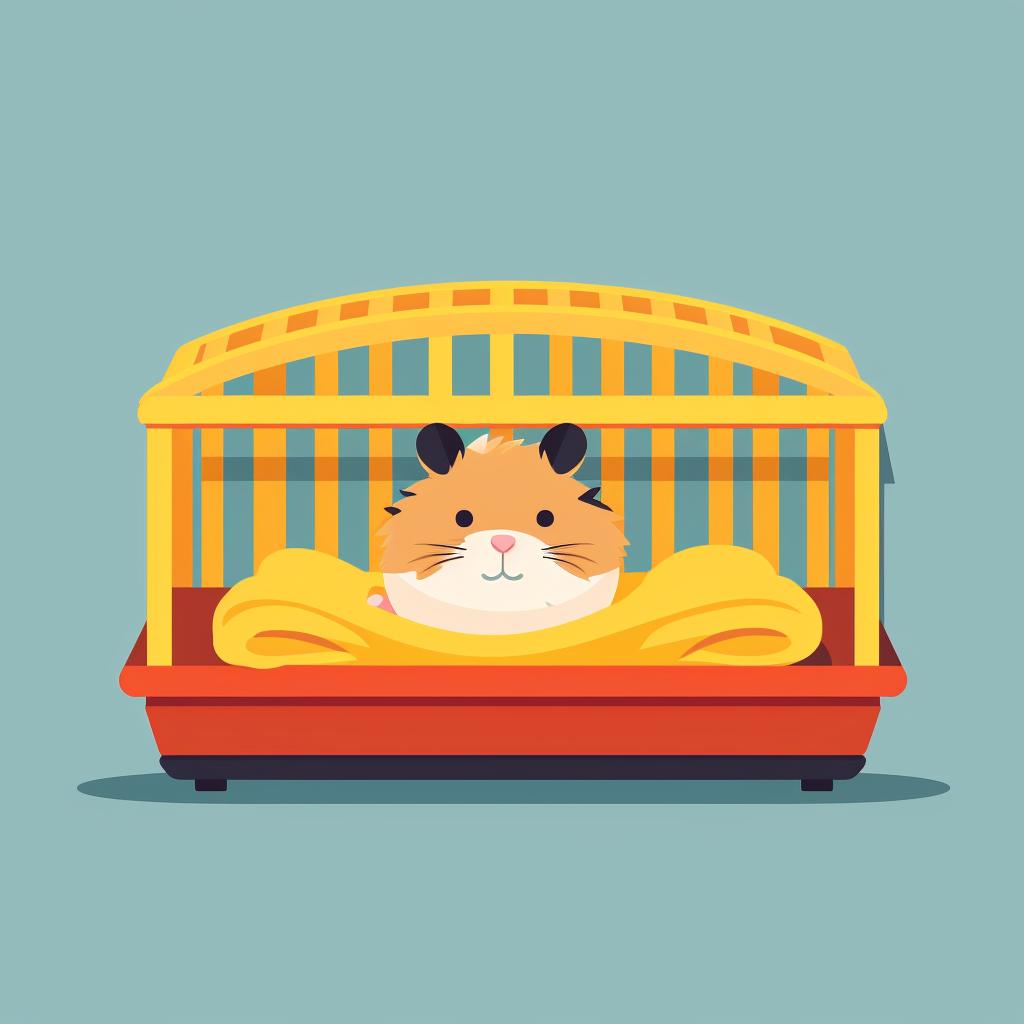Carol Wilkinson, an avid hamster lover and a licensed pet behaviorist, has dedicated more than ten years to exploring and caring for these small mammals. Her comprehensive knowledge and practical experience set her as a trusted expert on hamster care, health, and creating suitable environments. She contributes her expertise to Hamster Now, your comprehensive guide to everything about hamsters.
Are Russian dwarf hamsters aggressive? The short answer is, not necessarily, but their behavior can be influenced by various factors such as their environment, handling, and individual personality. Understanding hamster aggression and behavior can help in caring for Russian dwarf hamsters.
Let's Dive into the World of Hamster Behavior 🐹
Hamsters, like any other animals, can display aggressive behavior when they feel threatened or stressed. This is their natural defense mechanism. However, not all hamsters are the same. They have individual personalities and their behavior can vary. Some may be more prone to aggression than others.
Aggression Levels Across Different Hamster Types
As seen in the chart above, Russian dwarf hamsters are generally sociable and can live in pairs or small groups. But they can also exhibit territorial behavior, especially when in a cramped or unstimulating environment.
What's Making Your Little Buddy Grumpy? Unveiling Factors Behind Aggression 🕵️♀️
Several factors can influence the aggression in Russian dwarf hamsters. These can include their environment, the way they are handled, and their health condition. For example, a hamster living in a small, unstimulating cage may become stressed and display aggressive behavior.
A good example of such an environment is shown in the following Instagram post.
As you can see, this hamster cage is spacious and filled with various toys and hideaways, providing the hamster with plenty of stimulation and reducing the likelihood of stress-induced aggression.
As depicted in the Instagram post above, a spacious and stimulating environment can help reduce stress and aggression in hamsters. Regular, gentle handling from an early age can also make them more comfortable around humans.
Show Some Love! Essential Tips for Caring for Your Russian Dwarf Hamster 🥰
Proper care can greatly reduce aggression in hamsters. This includes providing a spacious cage, a balanced diet, regular cleaning, and gentle handling. It also helps to understand their behavior and respond accordingly.
Let's dive into the specifics of setting up a cage that promotes a stress-free environment for your Russian Dwarf Hamster. Follow these steps to provide a perfect home for your furry friend.
With the cage set up as described above, your Russian Dwarf Hamster will have a comfortable and stimulating environment that can help reduce stress and aggression. Remember, a happy hamster is a friendly hamster!
A well-set cage like the one described in the guide above can provide a comfortable living space for your hamster. Regular cleaning can prevent the build-up of odor that can stress your hamster. A balanced diet can keep them healthy and less prone to aggression.
Taming the Tiny Beast: How to Handle Your Hamster's Aggression 🤝
If your Russian dwarf hamster displays aggression, it's important to identify and address the cause. This can be a change in their environment, a health issue, or a reaction to handling. If necessary, seek advice from a vet or a pet behaviorist.
If your Russian dwarf hamster displays aggression, it's important to understand that this behavior can be a reaction to various factors. The following video provides a comprehensive overview on this topic.
The video above from Munchie's Place provides valuable insights and practical tips on dealing with hamster aggression. Remember, it's crucial to respond to these behaviors with patience and understanding, as your hamster is likely reacting to stress or discomfort.
The video above provides valuable insights and practical tips on dealing with hamster aggression. Remember, it's crucial to approach your hamster with patience and understanding.
Now that we've discussed some general aspects of Russian dwarf hamster behavior, let's dive into some frequently asked questions that you might have.
We hope this FAQ section has helped you understand your Russian dwarf hamster's behavior better. Remember, every hamster is unique and may behave differently based on various factors.
For more information about specific aspects of Russian dwarf hamster behavior, check out the FAQ section above. It covers a range of topics from their sleeping habits to their social behavior.
In conclusion, Russian dwarf hamsters are not inherently aggressive, but their behavior can be influenced by various factors. Understanding these factors and providing proper care can help ensure a positive experience for both you and your hamster.
What has been your experience with Russian dwarf hamsters?
We'd love to hear about your experiences with Russian dwarf hamsters. Please select the option that best describes your experience.





















